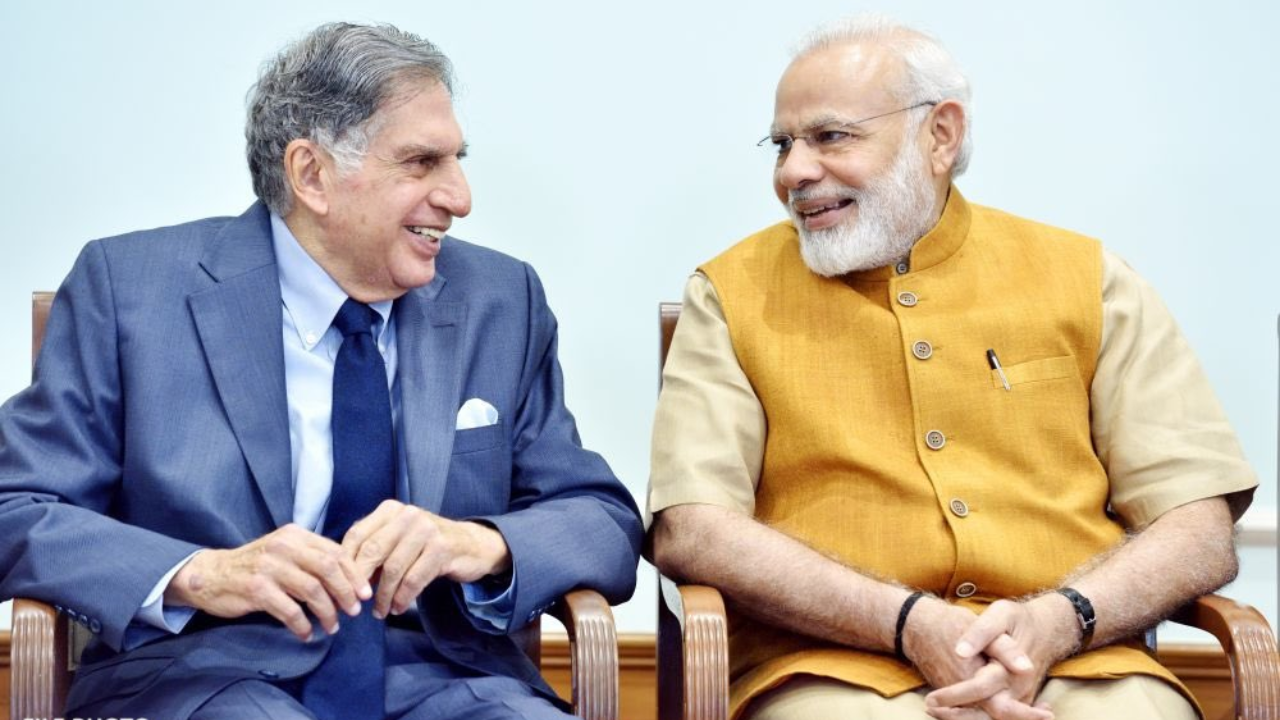
New Delhi: Ratan Tata, the Chairman Emeritus of the Tata conglomerate, died at the age of 86, leaving behind a legacy that will serve as a benchmark for generations to come. Tata, who led the conglomerate for decades, diversified the brand and made its presence felt on a global stage. Tata was also a man who envisioned a plan for the common man of India. One such dream project was the Nano — an affordable car priced at Rs 1 lakh in the late 2000s. However, his dream project faced significant hurdles in West Bengal as it became collateral damage in a "political crossfire."
https://www.youtube.com/watch?v=VzC8_inPwUw
In 2008, Ratan Tata had to move Nano project to Gujarat due to the hostilities he was facing in Bengal following protests led by the current Chief Minister Mamata Banerjee. Tata opted for Gujarat as he felt as he himself claimed that the state under the leadership of then Chief Minister Narendra Modi was "industry friendly".
Also Read: Ratan Tata, Chairman Emeritus Of Tata Group, Dies In Mumbai At 86
In an exclusive interview with Times Now, when Tata was asked why he chose Gujarat as an alternative to Bengal, he said, "Well, we've been courted now by many, many states. I think if one state stands out as a state which acts fast. Where truly at the very top, the chief minister seems truly committed to making the state prosperous and investor friendly."
"We have been always impressed by what Mister Narendra Modi has been able to do in terms of administering and managing the state in a very efficient manner. He holds to his word. I think that's. If I could dwell on that a minute. I think that's very important. Industry wants to be assured of," he added.
Tata expressed his faith in the current Prime Minister of India, saying "if he were to say that this will be done, it will be done."
Also Read: When Ratan Tata Chose Loyalty To His Dog Over A Royal Invite
Nano failed to achieve the desired success and Ratan Tata blamed the branding of the car responsible for its fate.
Admitting that Tata Motors made a mistake in the marketing and positioning of the Nano, he said: "It became termed as a cheapest car by the public and, I am sorry to say, by ourselves, not by me, but the company when it was marketing it. I think that is unfortunate."
He further said: "I always felt that Nano should have been marketed towards the owner of a two-wheeler because it was conceived giving the people who rode on two-wheels with the whole family an all-weather safe form of affordable transportation, not the cheapest."

